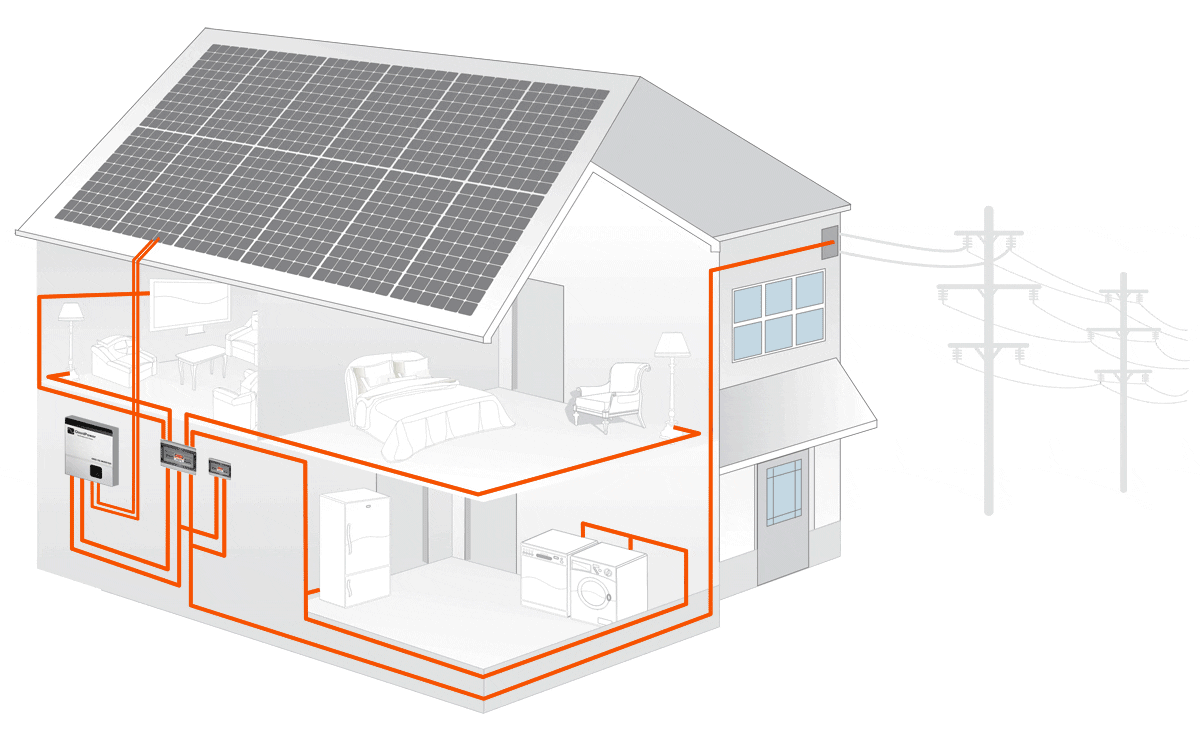Solar panel installation in Lucknow an on-grid setup will continue to generate electricity throughout the day.
With no backup for power interruptions, this power can either be used immediately or exported to the grid.
The method uses the same amount of power from the electrical grid if it ever runs out. Therefore, under this
scenario, a user will never run out of power. Similar to this, any surplus energy generated by the system is
fed into the grid. An on-grid system has the benefit of giving the customer a credit on his electricity bill
for the extra power he delivered to the grid. His electrical costs will consequently go down. Before establishing
an on-grid solar system, always consider your home’s energy usage, solar potential, solar electricity needs, etc.
Solar panels receive light from the sun, which is used to produce power. With the aid of the inverter, this DC from
the sun is transformed into AC, which is subsequently used by customers in their homes or any commercial establishment.
Any solar system’s functions up to this point are identical. Beyond this is where the big distinction lies.
There are two possible paths for the excess energy produced after the power that we consume:





